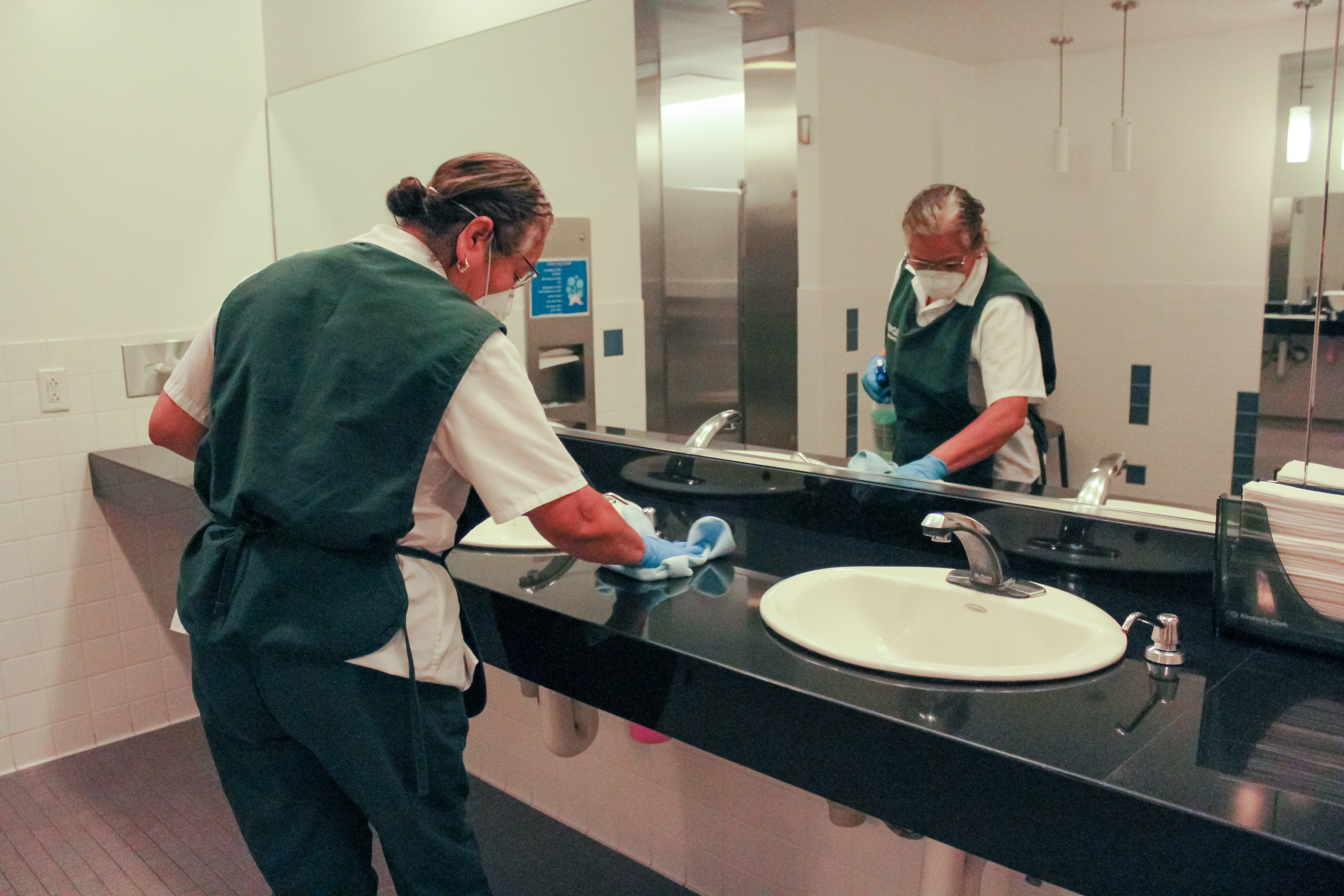
A Just & Equitable Recovery for Frontline Immigrant Workers
As originally published by Building Skills Partnership (BSP), on September 29, 2020. BSP is a statewide nonprofit working to improve the quality of life for low-wage property service workers and their families by increasing their skills, access to education, and opportunities for career and community advancement. BSP was featured in Fidelity Charitable's Silicon Valley Give Lists.
Read the full article here.
Since the COVID-19 pandemic took hold, the onset of the dual public health and economic crisis has laid bare the deep-rooted inequities in our society, while also exacerbating them. Many have noted how the virus disproportionately impacts marginalized communities of color, adding a health crisis to the long-standing pandemic of systemic racial injustice.
Hardest hit are those who were already most vulnerable, among them the janitors and other property service workers that the Building Skills Partnership (BSP) is proud to serve. Since shelter-in-place orders went into effect, everyday we count on these workers — mostly Latina immigrant women and other people of color — to protect the lives of Californians from the Coronavirus’s spread. Meanwhile they and their families are often denied the basic protections, living wages, access to the social safety net, and professional advancement opportunities that their service merits. Although the national discourse now recognizes these workers as “essential” for the critical service they have always provided to ensure clean and healthy building environments, that title has yet to translate into the protections and support that they have earned — and urgently need. Instead, we have seen that “essential” in name often means expendable in practice.
California’s frontline janitors labor and serve at the intersection of myriad crises: inadequate healthcare, lack of worker protections, unaffordable housing and childcare, poverty, income loss and more. As Latinos and essential workers, they are three times more likely to become infected by Coronavirus and twice as likely for infection to lead to death. Even prior to the pandemic, these workers and their families were experiencing housing and food insecurity due to California’s skyrocketing cost of living. Now they are impacted disproportionately by income loss, pushing many to the brink of eviction as moratoriums across the state expire. Once stable housing is lost, a cascade of vulnerabilities follows, perhaps the most pernicious of which is the further disruption of children’s education, which would further entrench the cycle of intergenerational poverty. Finally, frontline janitors are provided few opportunities for workforce training, career advancement and upward economic mobility — despite paying taxes and contributing an increasingly vital service to broad sectors of the economy — many are barred from safety net and relief programs because of their immigration status.
It is not only a sense of fairness and justice that compels us to act to reverse these devastating trends; it is also in our shared economic interest to do so. California’s hope for a full reopening and recovery relies directly on these essential workers ensuring clean, healthy workplaces and commercial spaces, and through them, the safety and confidence of employees and consumers. Simply put, there is no path to recovery without our frontline janitors.
Investments in their health, wellbeing, and professional development should be determined accordingly. That is why the Building Skills Partnership is adding our voice to many urgent demands that policymakers and funders act boldly to pave a path toward an equitable, just and inclusive recovery that explicitly centers the needs of these workers and their families. We recognize that these recommendations may reach beyond BSP’s traditional focus on workforce development and immigrant integration, but as an organization whose mission is to improve the quality of life of property service workers, we cannot remain silent as these workers are thrown into crisis.
Rebuilding prosperous, sustainable, and just communities requires robust investments and innovative policies and programs that are based on principles of equity.


